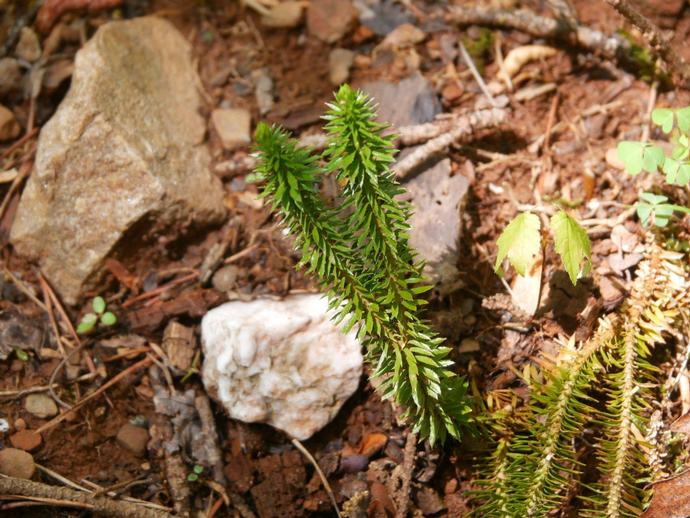May 24, 2020
Awhile back, we posted Diphasiastrum digitatum, better known as ground cedar or running cedar, which is a plant belonging to the ancient family Lycopodiaceae. However, ground cedar isn't the only lycopod you're liable to find in the woods in southwest Virginia; you might also spot Huperzia lucidula, also known as shining firmoss or shining clubmoss.
Lycopods date back to the early Devonian, about 380 million years ago, and they're unusual in that they do not produce flowers or seeds; instead they produce spores, sort of like a fungus!
Huperzia lucidula ranges from Canada down to North Carolina and can be found in bogs and stream edges, on hillsides, and in forests with rich, acidic soil. It releases its spores in the fall, which are mainly spread by the wind and running water. After the spores come in contact with moist soil, they develop roots and grow into clonal plants -- genetically identical to the plants they came from! #BenInNature
About this post: Social distancing can be difficult, but the next few weeks present a great opportunity to become reacquainted with nature. While he is working from home, Administrator of Science Ben Williams is venturing outdoors each day to record a snapshot of the unique sights that can be found in the natural world.
This post brought to you by VMNH Corporate Supporter Carter Bank & Trust.
NATURE PHOTO IDENTIFICATIONS
If you discover something in nature that you would like help identifying, be sure to message us right here on Facebook with a picture (please include location and date of picture) and we'll have our experts help you identify it!

 Hours & Admissions
Hours & Admissions Directions
Directions

